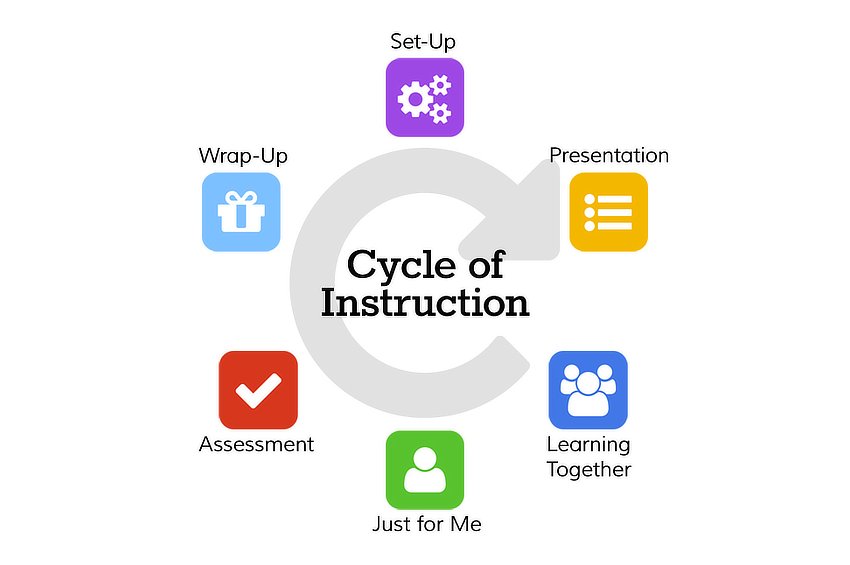
Kindergarten Readiness Assessment (KRA)
The Kindergarten Readiness Assessment (KRA) is one component of the broader R4K system in Maryland. The KRA is a kindergarten readiness tool that allows teachers to measure each child's school readiness across multiple domains.
KRA Overview
Four of the R4K Domains are assessed on the KRA. These domains include:
-
Social Foundations
-
Language and Literacy
-
Mathematics
-
Physical Well-Being and Motor Development
The KRA is an inclusive assessment that is administered to all kindergarten students. The administration window is open from the first day of school through October 10th. This window provides teachers with a snapshot or a point in time view of student abilities during the beginning of the school year.
KRA Items
The Kindergarten Readiness Assessment uses a developmentally appropriate mix of item types (direct performance and observational) in order to create a multi-modal assessment. The direct performance items are presented as Selected Response Items and Performance Tasks. KRA items were developed based on the Kindergarten Readiness Assessment Common Language Standards, which are a subset of the R4K Common Language Standards.
Review the document through the following link (document opens on an external browser):
Kindergarten Readiness Assessment Common Language Standards
Selected Response Items and Performance Tasks
Provide opportunities for direct interaction with students on a one-to-one basis. This creates a valuable connection between the student and the teacher at the beginning of the school year. Each item is scored using a rubric.
Observations
Can take place in a variety of naturally occurring settings and groupings. Teachers can use their professional judgment on an item-by-item basis to observe students individually, in small groups, or as a whole class. Observation items are scored using a rubric that includes specific criteria at three levels of proficiency.
The KRA Includes:
- Teacher Administration Manual: directions for administration, scripts and scoring rubrics
- Test Image Items: booklet of images that students interact with as the teacher administers the assessment
- Manipulatives
- KRA App: a number of items are offered in an interactive format that can be accessed through a desk-top computer or mobile device
- Item Score Sheets: provide valuable information about each child's performance across multiple learning domains
KRA Guidelines for Allowable Supports
Universally Designed Allowances
The KRA is designed as a single school readiness assessment to be used with all students. This requires a fully accessible system that allows for students with varying levels of ability, including students with disabilities and students who are English learners (ELs), to participate in the assessment.
A universally designed approach to assessment development and implementation is paramount to promote accessibility for all students. The KRA is unique and differs from other statewide school-age assessments, because it addresses the variability of student development and learning in the KRA’s targeted age group. The KRA includes features that are often perceived as accommodations for specialized populations, such as students with disabilities, but are identified as more appropriate as universally designed allowances within the KRA. Universally designed allowances include the range of actions, material presentations, procedures, and settings that are acceptable for use with all students when administering the KRA. The use of universally designed allowances does not invalidate the assessment results. The Guidelines for Allowable Supports for Administration of the Kindergarten Readiness Assessment document outlines five categories of universally designed allowances that teachers can use with any child as needed on an item-by-item basis:
- Directions
- Item Presentation
- Student Response
- Setting
- Scheduling
Children with Disabilities and English Learners
Expectations for students participating in the KRA have been established with consideration for their unique developmental needs and levels of school readiness. Even with the use of universally designed allowances, teachers may find it necessary to provide additional individualized supports to students with disabilities or to children who are English learners (ELs). For the purposes of the KRA administration, we will refer to the use of such individualized supports as strategies to Level the Field. The Guidelines for Allowable Supports for Administration of the Kindergarten Readiness Assessment document outlines specific Level the Field supports that may be used with children with disabilities and ELs. Teachers are trained on what these supports are, the decision-making process for determining the use of supports for individual children, and scoring children's responses.
Children who are Deaf and Hard of Hearing or Blind and Visually Impaired
The KRA also provides supports for students who are blind and visually impaired, including Tactile Graphics that incorporates raised images and Test Item Images with braille, as well as supports for teachers and students who are Deaf and Hard of Hearing.
KRA Professional Development
The Johns Hopkins University Center for Technology in Education (CTE) uses research-based methodologies for developing on-time and flexible professional development content that that addresses adult-learning practices and 508 accessibility guidelines.
The current training model builds capacity for a cadre of master trainers who have been certified to conduct KRA teacher trainings throughout the state after attending a multi-day Train-the-Trainer workshop. These trainers have access to a trainer site of materials and resources to support teacher trainings, as well as an online community of support throughout the training and testing window.
Teachers will be trained in one of three formats: face-to-face, hybrid/blended, or online only. The faculty and staff at CTE have developed a robust online site for teachers to access regardless of the format in which they are being trained. This site includes all of the content for understanding the three core components of the R4K system—technology, assessment, and professional supports. The Kindergarten Readiness Assessment (KRA) online teacher site also includes robust opportunities to review engaging training content, plan for and practice administering and scoring items, simulation exercises, reflection activities and the completion of self-check quizzes and a content assessment.
Online Modules
Teachers participating in the Kindergarten Readiness Assessment (KRA) receive training via face-to-face sessions or online modules. Both methods of professional development delivery are designed to engage teachers in learning experiences that prepare them to administer the Kindergarten Readiness Assessment with confidence and fidelity.

















